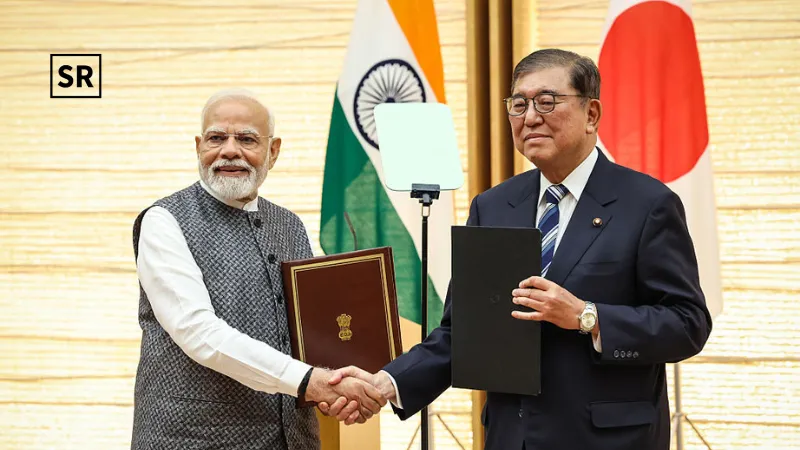
India and Japan have taken big steps to strengthen their Special Strategic and Global Partnership, putting more focus on economic security and key areas like semiconductors, clean energy, critical minerals, information technology, and pharmaceuticals.
During Prime Minister Narendra Modi’s visit to Tokyo, both countries highlighted that their friendship is built on shared values and mutual respect. They agreed to work faster together in new technologies, stronger supply chains, and innovation-driven growth to support both regional and global prosperity.
To make this possible, India and Japan launched the India–Japan Dialogue on Economic Security, a framework that will guide cooperation in areas where economy and security are closely linked. This includes semiconductors, clean energy, ICT, and pharmaceuticals. Alongside government talks, a business dialogue between Japan’s Keidanren and India’s CII has also been initiated to promote cooperation in key industries.
In semiconductors, the two countries signed an agreement between India’s Ministry of Electronics & IT and Japan’s Ministry of Economy, Trade & Industry. This has already led to real projects, such as Japanese chip giant Renesas Electronics partnering with CG Power to set up a semiconductor packaging and testing (OSAT) facility in Gujarat. There are also collaborations with IIT Hyderabad and the Centre for Development of Advanced Computing under the Chips to Startup programme, plus a strategic partnership between Tokyo Electron and Tata Electronics. Japan is also giving yen loan support for Tamil Nadu’s investment promotion programme, which will help start-ups in emerging tech, including semiconductors.
In critical mineral both sides signed a new agreement in August 2025 to expand cooperation in rare earths and critical minerals. This builds on projects like Toyota Tsusho’s refining initiative in Andhra Pradesh. India and Japan are also working together in global groups such as the Mineral Security Partnership and the Quad Critical Minerals Initiatives.
In ICT (Information and Communication Technology), cooperation is growing through joint work on 5G and Open RAN systems. NEC and Reliance Jio are partnering on telecom infrastructure, with Japan’s Ministry of Internal Affairs supporting an Open RAN pilot in India. NEC’s Centre of Excellence Lab in Chennai is leading research in advanced communications, and Japan’s NTT is expanding its data centre business in India, backed by Japanese investors.
Clean energy has become a key area of focus between India and Japan. The two countries have signed important agreements, including a memorandum on the Joint Crediting Mechanism and a declaration on clean hydrogen and ammonia. These agreements aim to accelerate the transition to greener, more sustainable energy solutions.
Several joint projects are already happening. For example, Adani Power’s Mundra plant is testing ammonia co-firing, while JBIC and Osaka Gas are working with Clean Max to run a 400MW renewable energy portfolio. India and Japan are also teaming up on battery supply chains and biofuel projects, with fresh loans and investments going into green initiatives such as bamboo-based ethanol in Assam.
India and Japan have named this year the Year of Science, Technology, and Innovation Exchanges, showing how important scientific cooperation has become. Both countries are working together in areas like artificial intelligence (AI), quantum technologies, biotechnology, climate change solutions and space research. They have launched the India-Japan AI Cooperation Initiative, signed a new agreement called Digital Partnership 2.0, and expanded academic and research exchanges through programmes like LOTUS and Sakura Science. On the industry side, companies such as NTT Data and Neysa Networks are investing in a major AI data centre cluster in Hyderabad, giving a big boost to private-sector collaboration.
The two countries are also strengthening their partnership in pharmaceuticals. Regulatory and research agencies from both sides have signed agreements and joined new projects under Japan’s Strategic International Collaborative Research Programme. Together, they are building a stronger biopharmaceutical supply chain. To support this effort, JBIC is providing financing to Japanese companies working in India’s pharmaceutical and chemical industries.
Read more- Vutto secures $7 Million Series A to grow its used two-wheeler marketplace




